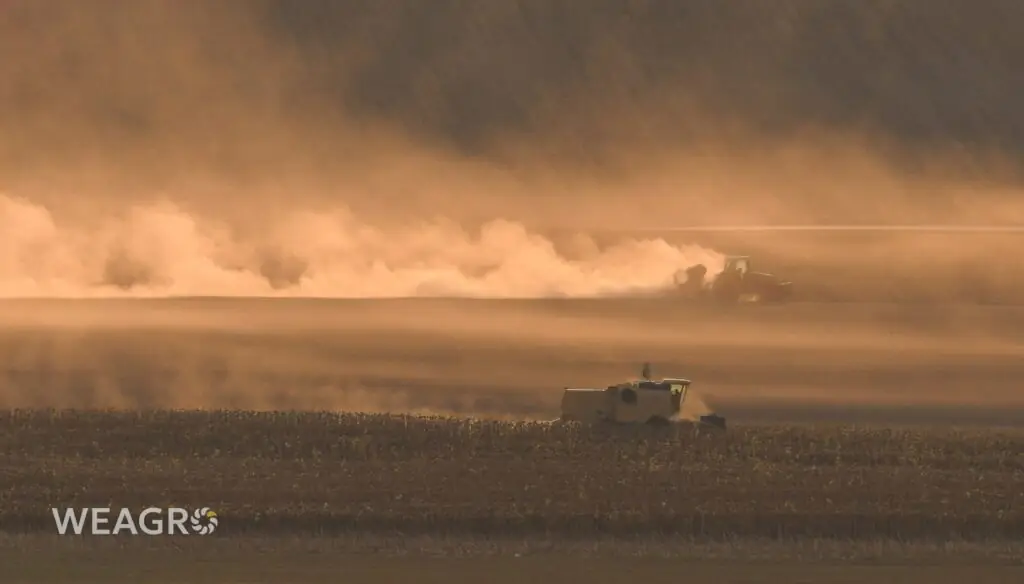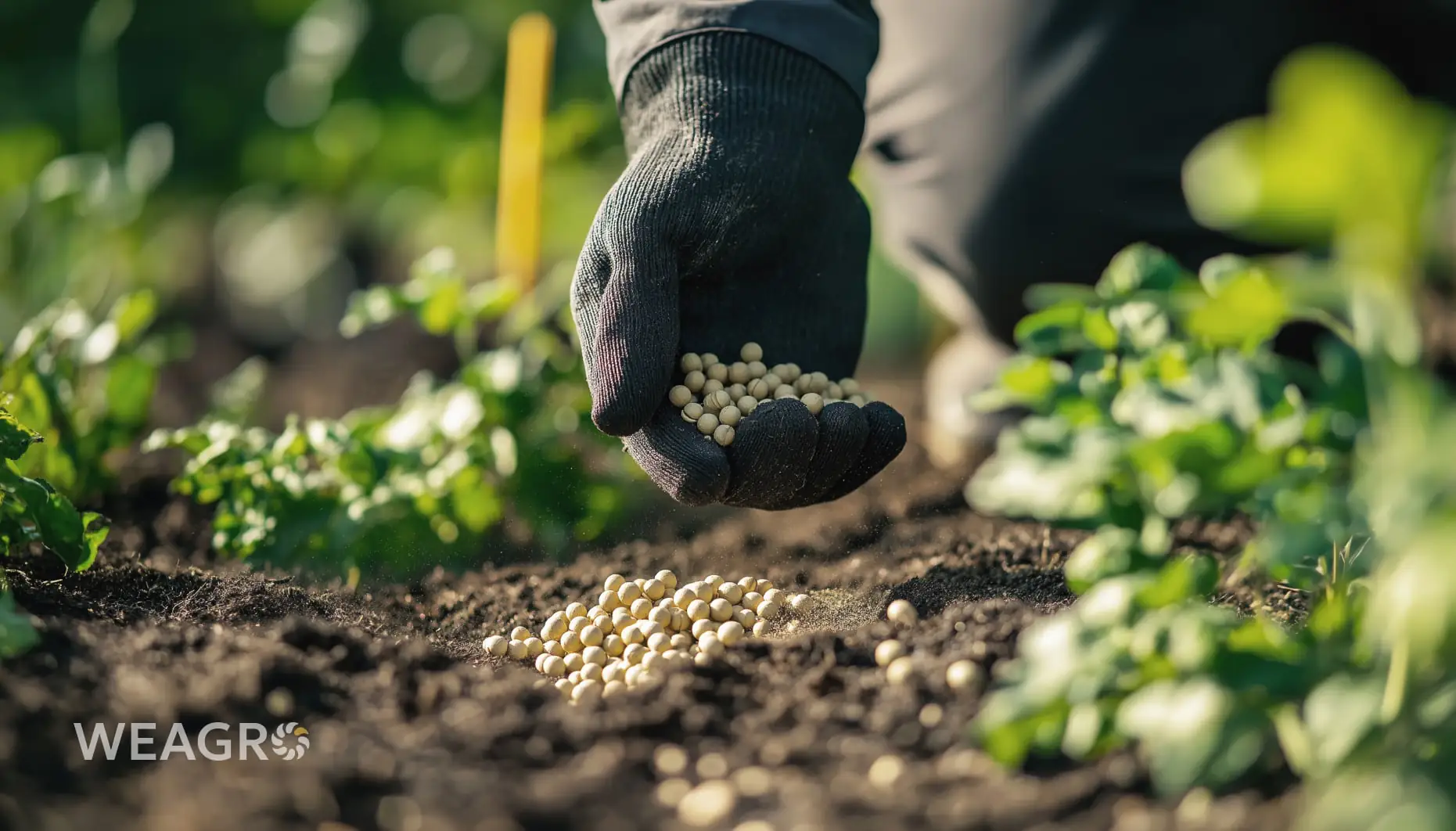Recent years have been a test of strength for farmers. War, market fluctuations, rising resource prices, and climate change have forced farmers to rethink every stage of their work. Ukrainian agribusiness found itself in conditions where planning for the season became more complex than ever before, and resilience became a key factor for survival.
Despite all challenges, farmers continue to work, restore fields, implement technologies, and seek new approaches to efficiency. This adaptation is not just about survival — it’s an evolution that is shaping a new culture of farming.

Main Challenges: from Logistics to Climate
Among the main difficulties faced by the Ukrainian agricultural sector are disrupted logistics, high production costs, limited access to financing, and instability of foreign markets.
Due to the destruction of ports and transport infrastructure, supply routes have changed. Farms are forced to seek alternative export routes, work through railways or new checkpoints. This increases costs but also stimulates the development of domestic processing.
Another significant challenge is climate change. Shifting seasons, prolonged droughts, sudden downpours, and temperature fluctuations directly affect crop yields. In southern and central regions, farmers are already observing a steady decrease in soil moisture, forcing them to switch to more drought-resistant crops or invest in irrigation systems.
In addition, farmers feel the impact of rising prices for fertilizers, fuel, and spare parts. As a result, production profitability decreases, and farms have to optimize every hryvnia of expenses.
Financial Risks and Lack of Working Capital
One of the most painful topics for farmers today is financial risks. Bank lending is complicated, and state support programs have limited resources. Many enterprises face a shortage of working capital, especially during the off-season when they need to prepare equipment, purchase seeds, plant protection products, or fuel.
In such conditions, the demand for alternative financial solutions is growing. Farms are looking for opportunities to obtain resources quickly, without complex procedures and collateral. This stimulates the development of new models of cooperation between farmers, suppliers, and fintech companies.
The WEAGRO service has become one of the examples of such cooperation. Its agro-installment allows agribusinesses to buy equipment, seeds, or fertilizers. This enables rational planning of purchases without losing production pace even with limited funding.
Farmers’ Adaptation: Strategy Instead of Improvisation
New conditions require not short-term solutions, but a strategic approach. Farmers are beginning to analyze risks, build forecasting models, implement crop insurance, and diversify income sources.
More and more farms are switching to multi-crop production — growing several types of crops to minimize the impact of a bad season. There is also growing interest in contract farming, where the future harvest already has a buyer, and the farmer receives a partial prepayment.
Another direction of adaptation is optimization of production processes. Instead of expanding areas, the focus shifts to the efficiency of each hectare. Farmers are implementing precision agriculture, soil moisture monitoring, automated accounting, and equipment management.
Technologies as a Response to Risks
Innovations have become an important part of the resilience strategy. They help not only to save resources but also to make data-driven decisions.
Precision fertilizer application, GPS navigation, satellite monitoring systems, or drones for crop control allow the farmer to clearly understand the situation in the field and avoid overspending. Every investment in technology becomes an investment in stability and predictability.
Ukrainian farms have proven that even in difficult conditions, they are able to quickly transition to new working models. Digitalization of agribusiness has ceased to be the future — it’s a necessity of today.

Human Factor: Team, Knowledge, Partnership
Adaptation is impossible without people. Personnel shortage is another problem faced by agricultural companies. Some workers have gone abroad, some have changed their field of activity. Therefore, the focus is shifting to education, requalification, and team culture.
Farmers are increasingly investing in training — not only agronomists but also machine operators, accountants, managers. Knowledge about finance, risk management, and modern technologies is becoming as important a resource as seeds or fertilizers.
Partnership between farmers, financial companies, educational institutions, and equipment suppliers forms a new ecosystem of agribusiness — flexible, mutually supportive, and development-oriented.
Read also: Winter Storage of Equipment: Tips and Proven Practices
Recovery through Financial Flexibility
For Ukrainian farmers, it’s important not only to survive the crisis but also to find models that will allow growth in new realities. Flexible financing is becoming a crucial element of this process.
The online service WEAGRO has created a solution that combines financial support, speed of decision-making, and trust. Farmers can obtain necessary resources without collateral, without paper procedures, in a few clicks. This saves time that previously went to bureaucracy and allows focusing on the main thing — work in the field.
Thanks to such tools, agribusiness gets an opportunity not just to adapt, but to develop. The main thing is to see challenges not as obstacles, but as an impetus for change.
Conclusion
The agricultural sector of Ukraine today is an example of strength, endurance, and ability to adapt. Every farm that continues to work proves that even in the hardest times, solutions can be found.
Challenges become catalysts for renewal, and risks become an impetus for implementing new approaches. In these conditions, digitalization, financial support, and partnership create a new architecture of agribusiness based on flexibility, knowledge, and trust.
The Ukrainian farmer has learned not just to adapt — he has become part of a new economy that is able to restore the country even in the midst of war.
Plan the development of your farm with confidence.
Choose the necessary goods or equipment and use agro-installment from WEAGRO — a service that helps farmers act when others are just waiting for changes.









